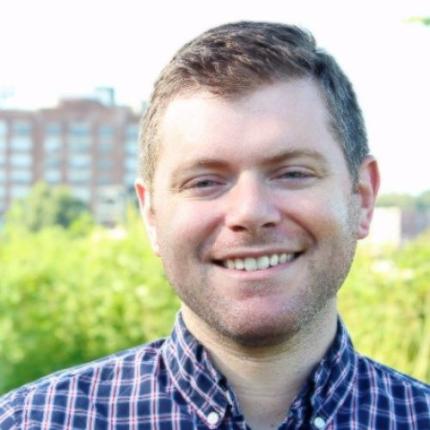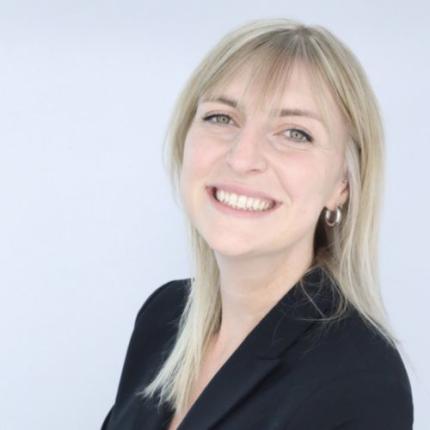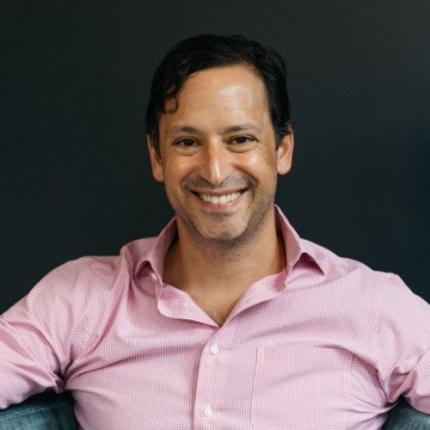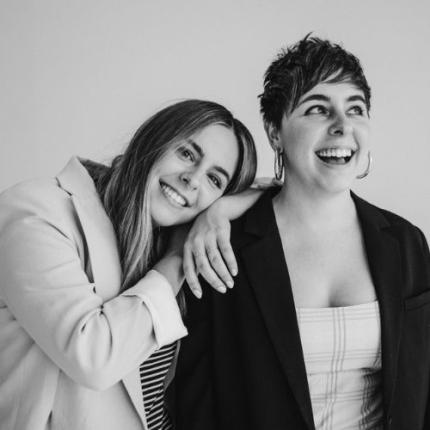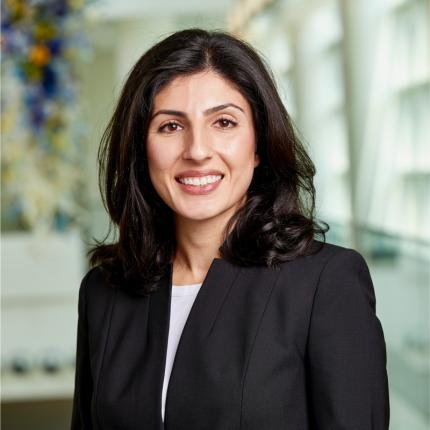Starting a business is not for the faint of heart. According to the U.S. Bureau of Labor Statistics, nearly 50% fail within the first five years.
It takes courage and perseverance to take the leap into the unknown, but these eight Ivan Allen College alumni did it anyway. From real estate and hospitality to nonprofits and energy analysis, here’s how they use their liberal arts degrees to navigate, grow, and create change in businesses across a myriad of industries.
Motivated to Make Change
What inspired these founders to take the risk, and what keeps them passionate about their work despite the many challenges that come their way? A common thread in many of their business ventures is the drive to do good.
Matt Cox, who co-founded Greenlink Analytics in 2014 after completing his Ph.D. in the School of Public Policy, says his organization focuses on improving two of the foundations of American society: energy and social equity. Greenlink uses economic modeling invented at Georgia Tech to explore the job and income tradeoffs of different clean energy investments and machine learning to help inform the distribution of resources and burdens across communities. Over the past ten years, Cox and his team have detailed ways for cities and states to avoid 8.4 billion metric tons of CO2 emissions and save $757 billion.
"I believe in an obligation to increase opportunities for others, and Greenlink works to achieve this through climate and energy policy action," he said.
Amanda Shojaee, B.S. INTA 2014, MBA 2023, works to improve inclusivity in the hospitality industry by helping companies hire and employ individuals with disabilities. She launched In Good Company this summer, completing the CREATE-X Start-up Launch with her co-founder, Sarah Naumann, MBA 2023.
"Business value and social good can work together beautifully, and I love getting to make that happen," Shojaee said. "Hospitality needs talent, and there are many people with intellectual or developmental disabilities looking for work. Through our efforts, these two groups can come together to solve two challenges with lasting success."
Energy security and inclusive work opportunities both contribute to stronger communities. Gene Kansas, M.S. DM 2016, might also add real estate to that list. With his self-named commercial real estate company, Kansas has spent 23 years protecting, conserving, and caring for Atlanta's cultural spaces.
"It's incredibly important to include joy, fulfillment, and giving back in the definition of success,” Kansas said. "If we love what we do, we'll typically do more of it better. And if we're fortunate, we can apply the same passion we enjoyed as children to our careers and find greater purpose in our pursuits."

Kansas in front of the "Honor Mural" he helped create in Sweet Auburn. The mural celebrates Roslyn Pope and her scouts' accomplishments as Atlanta's first Black Girl Scout troop and heroes of the Civil Rights Movement.
Overcoming Adversity
Whether it's year one or year ten of running a business, the challenges never really go away. For Heather Johnston, an attorney by day and nonprofit founder by night, figuring out the requirements to make her organization, Blueprint Bridge, an official nonprofit was the first hurdle.
"Business acumen does not come easy to me because of my rural, low-income background,” said Johnston, a 2017 graduate of the School of Public Policy. “It requires a lot of time and research! But I focused on my goal of helping my community to push through complicated material I didn’t understand."
Blueprint Bridge connects previously incarcerated individuals with information and resources upon their release. As a first-generation college student at Georgia Tech, Johnston received a lot of help and support navigating unfamiliar financial terrain. Now, she wants to help pay that forward.
"I believe in the community mindset. Our communities improve when we work together," she said.
When it came to starting In Good Company, Shojaee felt most nervous about taking a leap into the unknown.
"Going all in and the risks that come with doing that was a challenge," she said. "However, I knew I was itching for more in my life and looking to do something with a greater purpose, and I could feel that happening even before we incorporated it."
On the other end of the spectrum, Kansas has been running his real estate business since 2001. However, he said he nearly entered the 50% statistic with his first venture in publishing.
"The most challenging aspect was having a focus and staying focused," Kansas said. "It wasn't smooth, efficient, or profitable, and as a result, I created compounding challenges for myself and others."
Fortunately, the hurdle didn't dampen his enthusiasm. Instead, it taught Kansas an important lesson, and he was eventually able to grow and sell the company.
"Learning the importance of focus through hard times impressed upon me the significance of it, and I made a change," he said. "With more focus came more success."
Oh, The Humanity
There’s no doubt that founders play an integral role in growing and developing a company. But, businesses can't run without customers. And that means no matter how tech-focused a product or service might be, understanding the human element of the organization and the people it serves will always be beneficial. Among these alumni founders, critical thinking and an open-minded attitude emerged as a common theme in how their IAC degree helped them succeed.
"Public policy helped me understand the different stakeholders," Johnston said. "It also helped me to ask questions to focus the business — who does this help? And what do they need?"
Shojaee echoed this sentiment.
"Just like in international affairs, I must consider the interests of those I interact with to understand how they operate," she said. "While my work is more domestic-focused, there are still many complexities in navigating a variety of stakeholders, the history of disability in the United States, and the public policy that can affect how businesses and advocacy groups act."
Dréa Lewis, a graduate of the Science, Technology, and Culture program (now renamed Literature, Media, and Communication) encapsulates the interdisciplinary nature of Ivan Allen College and the liberal arts. She runs a film production company called Dream of Dréa and co-owns her family's home care company for older adults and people with disabilities. It's a unique combination of work, but then, her degree equipped her with a unique skill set, she said.
In both businesses, her education empowers her "to navigate rapidly evolving technologies, understand diverse cultural contexts, and contribute meaningfully to the ethical and creative dimensions of entertainment and healthcare," Lewis said.
Kansas also said he learned how to research, think deeply, and apply knowledge in a cultural manner during his time at Ivan Allen College. He previously earned a degree in entrepreneurship and returned to school at 40 for an M.S. in Digital Media.
"I use design and humanities-based programming to develop cultural narratives and connect people with the neighborhoods they love in a way that — hopefully — creates civic, social, and historical value,” he said. “My time at Ivan Allen College was instrumental in creating the platform and, more importantly, in seeing how to combine liberal arts, science, technology, and business to benefit the community.”

Left: Amanda Shojaee with her co-founder at CREATE-X Demo Day. Right: Dréa Lewis
It Comes Back to Passion
These experienced alumni founders have learned a lot of hard lessons. Thus, they have plenty of advice for students interested in following in their footsteps. For example, Cox stresses the importance of customer discovery — one of the foundational practices of Georgia Tech's CREATE-X program — as one of the essential building blocks for entrepreneurial success.
"Starting with scientific curiosity towards your customer base will keep you from wasting time and money, advancing your work far faster and more efficiently than most other approaches," he said. Finding a working business model was the biggest challenge in building Greenlink Analytics. “But our team worked hard and spoke with hundreds of brilliant people to understand the problems people faced and how we could contribute something valuable to the ecosystem.”
Although there are certainly practices to limit risk in a new business, it never truly goes away. That's when passion is a solid tool to have in your toolbox as well.
"Do the things you're passionate about," Johnston said. "More people than you know are looking for what you're offering, and it can make a big difference."
"Do what you love, and have a good plan,” Kansas added. “Passion keeps you interested and committed to your goals, missions, and dreams. Creating a plan increases the likelihood of reaching your destination."
Founder Profiles
CEO, Greenlink Analytics
Founder and Director, Blueprint Bridge
Founder and CEO, Gene Kansas Commercial Real Estate
Owner, Dream of Dréa, Co-owner and CFO, Genèsic Health
Co-founder, Mushaboom Studio
Co-founder, In Good Company
Co-founder, Equilibria Group, Inc.

